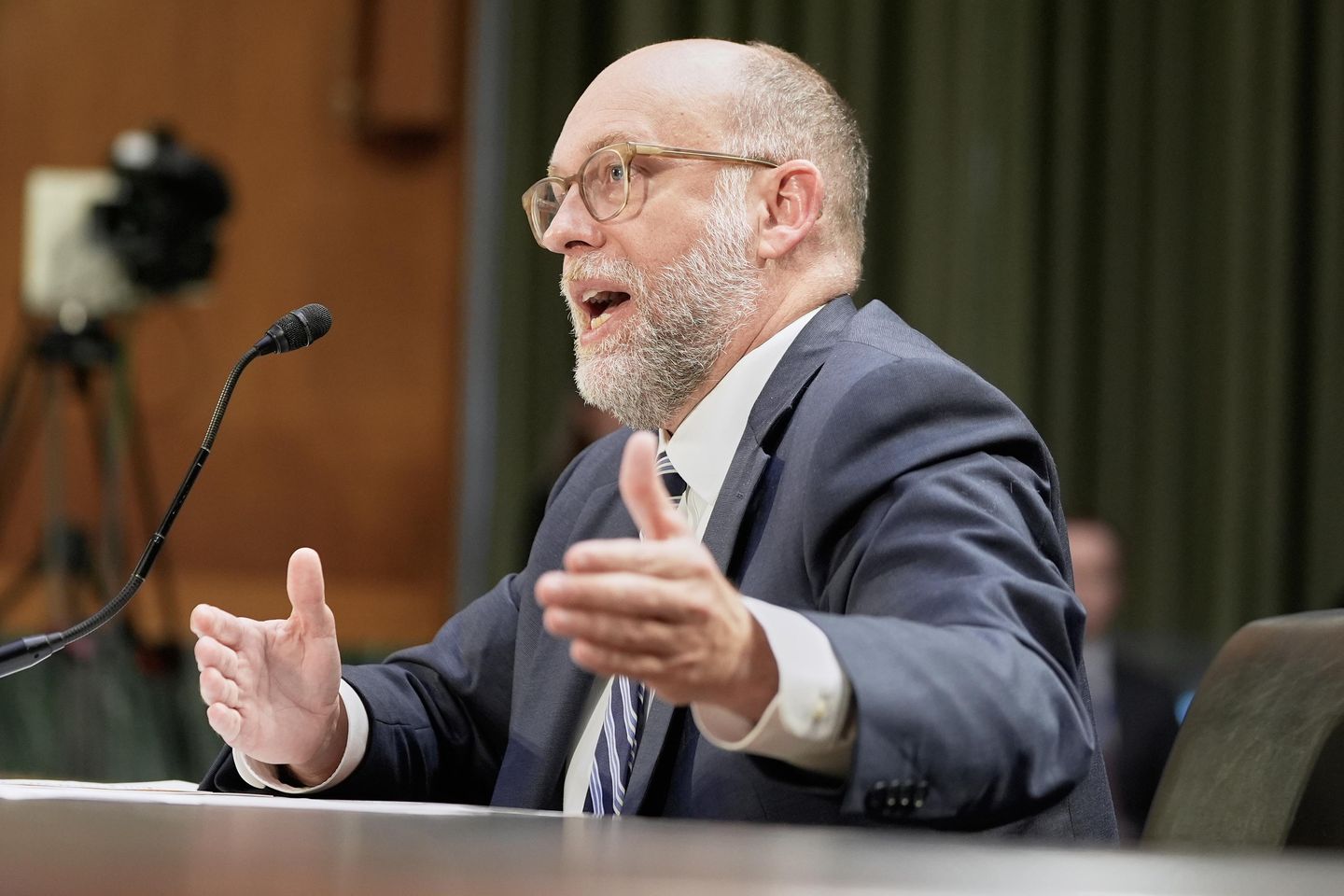
Senate Republicans on Wednesday forced the White House budget chief to defend parts of a $9.4 billion package of Trump-requested spending cuts, signaling the senators’ intent to make changes to the package.
The Senate Appropriations Committee dug into the $9.4 billion rescissions package, which would cut $8.3 billion from foreign aid accounts and $1.1 billion from public broadcasting, at a hearing with White House Office of Management and Budget Director Russell Vought in the hot seat.
They objected to slashing $400 million from the President’s Emergency Plan for AIDS Relief, or PEPFAR, and other foreign aid that they described as America’s “soft power.”
Others worried that the cuts to public broadcasting went too far and would hurt rural and tribal communities.
The political sensitivity of the cuts was underscored by roughly half a dozen protesters who interrupted Mr. Vought’s testimony, screaming that clawing back foreign aid would have deadly consequences.
“Vote aye, people die,” they chanted, while holding up posters that read, “Don’t let cuts = death.”
“Babies are dying,” another protester declared.
Capitol Police quickly escorted them out.
The House narrowly passed the full package earlier this month, but there do not appear to be enough Republican votes in the Senate to do the same.
Senate GOP leaders cannot afford more than three defections. At least four Republicans on the Appropriations Committee – Susan Collins of Maine, the chair of the spending panel, Mitch McConnell of Kentucky, Mike Rounds of South Dakota and Lisa Murkowski of Alaska – raised concerns at the hearing.
Ms. Collins defended PEPFAR, which is credited with saving more than 26 million lives and enabling 7.8 million babies to be born HIV-free to mothers living with HIV.
She said it is “extraordinarily ill-advised and shortsighted” to cut PEPFAR funding now, as the United States is on track to fulfill the program’s mission and transition HIV/AIDS treatment and prevention to country ownership by 2030.
Mr. Vought said that if the rescission to PEPFAR is enacted, the program will still have nearly $10 billion in funding to spend over the next two to three years.
He cited past wasteful spending in PEPFAR: $9.3 million to advise Russian doctors on how to perform abortions and gender analysis; $1.1 million to produce a report on gender transformation; $800,000 for transgender people, sex workers and their clients in Nepal; and $330,000 for LGBTQ advocacy in Uganda.
“Money they thought was going to medical care was actually going to far-left activism, population control and sex workers,” he said. “To be clear, no life-saving treatment would be impacted by this package.”
Ms. Collins said the examples Mr. Vought provided were from the Biden administration and not a justification for cutting PEPFAR funding Congress appropriated in March for the current fiscal year.
“There is no way that President Trump’s administration would allow such wasteful and questionable spending,” she said.
Democrats raised similar points.
“There are a bunch of different examples of terrible sounding things,” Sen. Brian Schatz, Hawaii Democrat, said. “They are all done and they all belong in the previous fiscal year.”
Still, Mr. Vought’s examples convinced at least one skeptical Republican. South Carolina Sen. Lindsey Graham, who chairs the appropriations subcommittee that oversees foreign aid programs, said he had no idea there was even a dollar spent on “that junk.”
“You opened up my eyes,” he told Mr. Vought.
Mr. Graham then turned to the Democrats in the room and said, “I don’t want to hear any more crap about us from ya’ll. None. This happened on your watch. No more preaching to me.”
Mr. Vought said part of the administration’s review of foreign aid programs is about cutting off funding to “liberal NGOs doing activities that the American people wouldn’t support.”
“Just because they’re in the PEPFAR account shouldn’t make them immune from rescission,” he said of the nongovernmental organizations.
Mr. McConnell and Mr. Rounds had “soft power” concerns and worries that U.S. adversaries will fill the void.
“In critical corners of the globe, instead of creating efficiencies, you’ve created vacuums for adversaries like China to fill,” Mr. McConnell said.
Mr. Rounds also questioned the $1.1 billion cut to the Corporation for Public Broadcasting, which would effectively end taxpayer funding for NPR and PBS.
“We have Native American radio stations in South Dakota. They get their funding through NPR,” he said. “They will not continue to exist if we don’t find a way to take care of their needs.”
Still, Mr. Vought defended NPR and PBS cuts, saying it would stop taxpayers from funding politically biased news.
Those cuts come from advanced appropriations for fiscal years 2026 and 2027, which gives impacted public broadcasters time to find alternative sources of funding, Mr. Vought said.
That assurance did not ease concerns from several senators who said it would wipe out public media that rural areas rely on.
“They are saying that they will go under if public broadcasting funds are no longer available to them,” Ms. Murkowski said.












